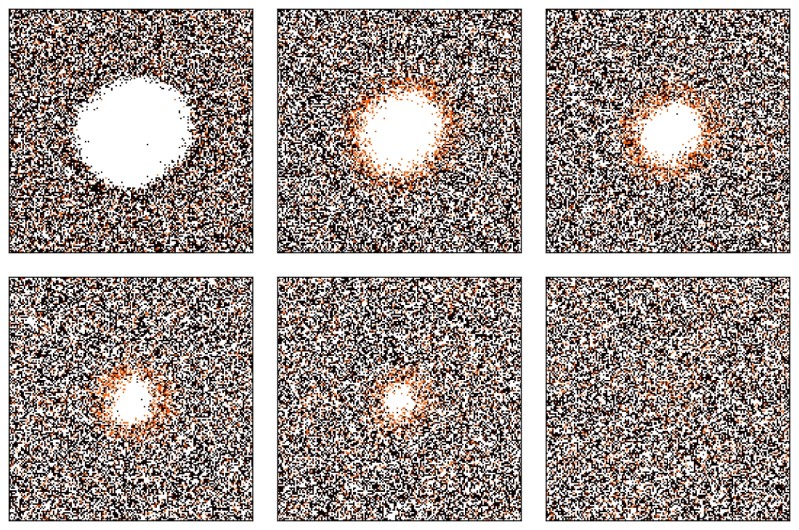When altruism smooths social dynamics
 Altruistic agents (in orange) slow down the concentration of individualists by positioning themselves at the boundaries of groups, acting as surfactants and promoting group cohesion.
Altruistic agents (in orange) slow down the concentration of individualists by positioning themselves at the boundaries of groups, acting as surfactants and promoting group cohesion.
The EconophysiX Lab, led by Michael Benzaquen, is developing an analytical approach inspired by the statistical physics of complex systems to study behaviour in the presence of interactions and heterogeneities. In this context, three researchers from the Hydrodynamics Laboratory (LadHyX*), Jérôme Garnier-Brun (now at Bocconi University), Ruben Zakine (Ecole Polytechnique) and Michael Benzaquen (CNRS/Ecole Polytechnique), have published an article in Physical Review Letters highlighting a new phenomenon of interactions between selfish and cooperative behaviours.
A model between physics and social sciences
Researchers are studying a system composed of modelled social agents that can adopt two behaviours: selfish or altruistic. Using tools from statistical physics and hydrodynamics, they analyse how the combination of these two attitudes influences the overall organisation of the system.
A strategic role for altruists
The results are striking:
- A purely selfish system tends to become disorganised and form inefficient groupings, where overall well-being is not optimal even though individuals have compatible goals.
- The introduction of a small proportion of altruistic agents is enough to restore more harmonious functioning on a global scale.
The researchers emphasise that it is not enough for altruistic behaviour to occur randomly: even a small proportion of individuals who consistently behave altruistically will have a much stronger impact on the system than random behaviour. Placed at the boundaries between groups, altruists gradually restore the balance of the system. This strategic location allows them to play a role similar to that of surfactants – soap molecules that stabilise a water/oil mixture – reducing tensions and improving group cohesion.
Implications beyond the economy
This work opens up perspectives that go beyond the socio-economic framework. The mechanisms identified could be applied to the study of active ‘intelligent’ systems (robots, animals), where the balance between individual and collective optimisation is crucial for controlling emerging behaviours.
*LadHyX: a joint research unit of the CNRS, École Polytechnique, Institut Polytechnique de Paris, 91120 Palaiseau, France.
 Support l'X
Support l'X